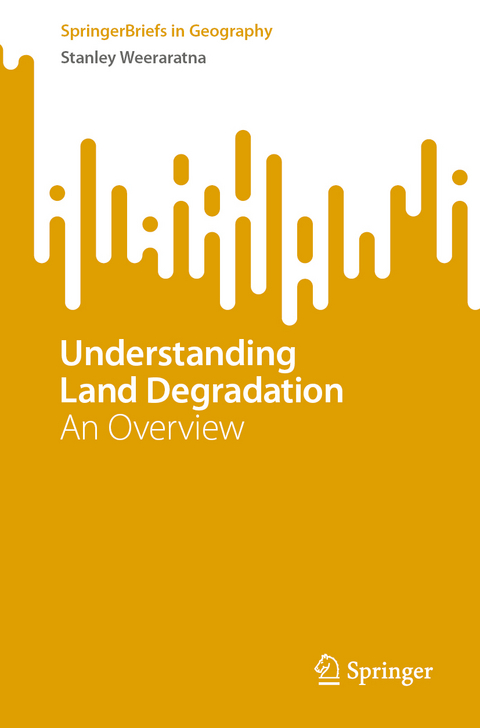
Understanding Land Degradation
Springer International Publishing (Verlag)
978-3-031-12137-1 (ISBN)
This book highlights issues related to land degradation, the causal factors and methods of control.
Much of the earth's population is dependent on agriculture as it provides food for their sustenance. Successful crop production depends to a considerable extent on land and climate. Soil is the main component of land and a fertile soil is essential for crop growth. However, soil fertility declines over the years mainly due to land degradation. Hence, implementing appropriate measures to control land degradation is important. It is the responsibility of the farmers and the governments to take action to control land degradation. Agricultural extension officers are involved in making farmers aware of land degradation and control measures. Planners and policy makers need scientific assessments on land degradation and its implications so that they could advice the relevant authorities who prepare the national programs and budgets.
This book highlights issues related to land degradation, the causal factors and methods of control. The audience is agricultural practitioners and planners as well as students of agriculture. Environmentalists would also benefit by understanding the main issues related to land degradation discussed.
Dr. Stanley Weeraratne, an agricultural graduate of the University of Ceylon, completed his PhD at Wye College of the University of London in 1972. In 1980 he was appointed Professor and Head, Dept. of Agronomy, Ruhuna University Sri Lanka. Later he joined the Univ. of South Pacific and after a few years he was appointed a Soil Fertility and Microbiology Specialist of the Food and Agriculture Organization of the United Nations. Subsequently Dr. Weeraratna was appointed Professor and Head, Dept. of Soils and Water Resources Management, of the Faculty of Agriculture, Rajarata University of Sri Lanka and later he was appointed Chairman of Sugarcane Research Institute of Sri Lanka. He was elected Chairman of Lanka Rainwater Harvesting Forum a few years ago and at present is a member of the forum.
Chapter 1. Introduction.- Chapter 2. Causes of Land Degradation.- Chapter 3. Effects of Land Degradation.- Chapter 4. Control of Land Degradation.- Chapter 5. Benefits of Land degradation Control.- Chapter 6. Climate change and Land Degradation.
| Erscheinungsdatum | 29.09.2022 |
|---|---|
| Reihe/Serie | SpringerBriefs in Geography |
| Zusatzinfo | XI, 68 p. 10 illus., 9 illus. in color. |
| Verlagsort | Cham |
| Sprache | englisch |
| Maße | 155 x 235 mm |
| Gewicht | 136 g |
| Themenwelt | Naturwissenschaften ► Biologie ► Ökologie / Naturschutz |
| Naturwissenschaften ► Geowissenschaften ► Geologie | |
| Technik ► Umwelttechnik / Biotechnologie | |
| Weitere Fachgebiete ► Land- / Forstwirtschaft / Fischerei | |
| Schlagworte | Droughts • floods • Land Degradation Causes • Land Degradation Mitigation • Soil conservation • Soil fertility |
| ISBN-10 | 3-031-12137-6 / 3031121376 |
| ISBN-13 | 978-3-031-12137-1 / 9783031121371 |
| Zustand | Neuware |
| Informationen gemäß Produktsicherheitsverordnung (GPSR) | |
| Haben Sie eine Frage zum Produkt? |
aus dem Bereich


